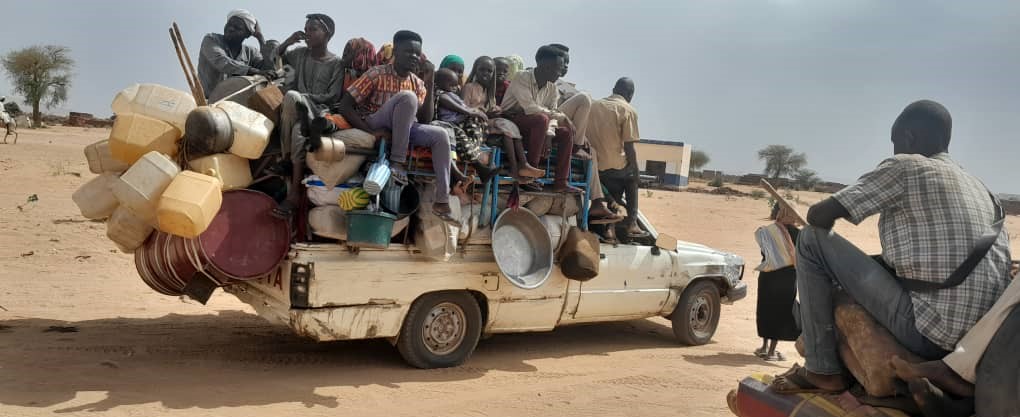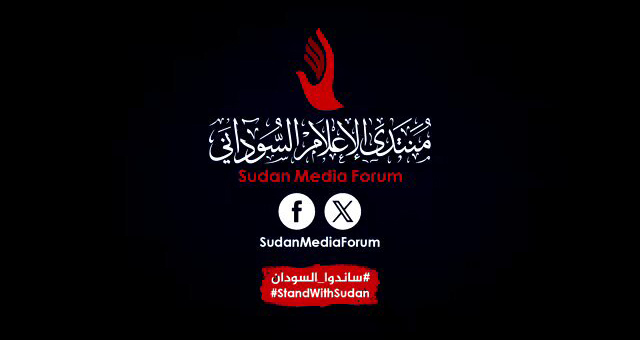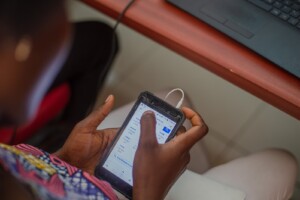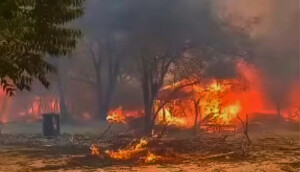Sudan Media Forum: War being waged on the elderly in Sudan

A vehicle carrying civilians fleeing the fighting in El Fasher (Photo: Official spokesperson for the displaced on Facebook)
Compiled by Minhaj Hamdi of Mashaweer News for Sudan Media Forum joint newsroom
75-year-old Mohamed Turkawi lives in one of the shelters in the city of El Obeid in North Kordofan, where he arrived displaced and fleeing the fierce battles between the army and the Rapid Support Forces (RSF). With a shaky body and flimsy bones worn out by the years, Turkawi and thousands of elderly Sudanese have been living a hard and tiring life that has been with them since the outbreak of war in April 2023. This life is no different with safe cities and active conflict zones. They live this life, especially the humanitarian and living conditions, as well as health care, and the government agencies and organisations have not taken into account their special conditions, rights, and dignity.
Since the outbreak of the armed conflict, hundreds of elderly people have been displaced from Khartoum and other cities in search of safety, some of whom were forcibly displaced by shelling of their areas, others living in diaspora due to the displacement of their families in search of survival, as well as third groups residing in refugee centres in neighbouring African countries such as Chad, Uganda and Ethiopia, amid very difficult humanitarian conditions.
Neglect and suffering
“We came here and left our homes, and in a year and a half we overcame very complicated conditions, but we will not be able to withstand the war if the war continues for a long time, the state or national and international humanitarian organisations did not take into account our exceptional situation and the need to allocate places where there are means of comfort, in addition to health care and quality food,” said Mohamed Turkawi.
He added: “The escalation of fighting did not spare anyone and even targeted the elderly, forcing them to flee the war to the harsh hell of life in camps that lack the most basic components, in light of the presence of women and men suffering from chronic diseases, malnutrition and psychological problems.”
“We need growing attention from all sides, in addition to providing medical and humanitarian aids, and allocating unified shelters for the elderly with specifications that take into account their special situation in order to ensure their health and psychological safety,” Turkawi explained.
Disease and lack of care
“Three months after the outbreak of the war, I was displaced with my family to the Karri locality in the city of Omdurman, and I continued to live in the house of one of the families living in Cairo, but we are suffering from harsh conditions,” she says.
“We need, first and foremost, to respect our rights and dignity and not to be marginalised, because the situation of war is completely different from the lives of many in their homes and among their families, and it is unfortunate that the state does not care about the care of the elderly and does not provide them with the minimum basic needs, and humanitarian organisations focus only on recording our data,” she added.
Jar al-Nabi described the health condition of a number of elderly people as bad, as “some of them suffer from diabetes, others complain of heart disease, and a third group has lost the ability to see due to poor vision, and the majority do not have the money to buy medicines and save on the cost of treatment.”
“Many elderly people have lost their lives as a result of the interruption of life-saving medicines, the lack of health centres and the disruption of dialysis centres across Sudan,” she said.
Neglect and a care crisis
In the same context, social researcher Maysoon Al-Sharif said that “this group suffers from great marginalisation and neglect, and most of them suffer from malnutrition, which often leads to a number of chronic diseases, and a large percentage of them need to undergo periodic medical examinations and provide the required treatments.”
She pointed out that “the elderly in the shelter camps feel that they are not cared for and neglected, whether by the state, organisations and sometimes families, which makes them vulnerable to many social, psychological and physical problems.”
“In fact, the elderly are the weakest and most difficult group of all, as most of them suffer from illness and old age and need care that they lost in light of the war that they lived through, and which caused more torment for their already frail bodies,” she added.
The social researcher appealed to the state and national and international organisations to improve the conditions of the displaced and stranded elderly in the capital in its three cities, Khartoum, Omdurman, and Bahri, and to provide all the needs related to their situation and special circumstances at the moment.
Social isolation
Mental health specialist Ihab Gamal explained that “the elderly are greatly affected by climate factors, such as high temperatures and high humidity that require good ventilation, which is not available in the homes of families in the capital, Khartoum, and the cities of Omdurman and Bahri, due to the ongoing electricity crisis, as well as the elderly living in shelters, as well as the lack of adequate health care due to the lack of many cities and regions, in addition to shelters for permanent clinics to follow up on critical cases Especially in light of the collapse of the country’s health sector.
“Social isolation under the conditions of war is the harshest thing that the elderly face, as it causes the psychological state of the elderly to deteriorate, especially with the loss of friends and distance from social roles, which can lead to a feeling of loneliness and sadness,” Gamal said.
He added: “The elderly have fallen off the list of priorities for those responsible for them, in light of the collapse of the health sector, and the war has left difficult psychological effects on them, and with the crowding of priorities, the mere thought of providing mental health to the elderly is a form of well-being.”
He continued: “We are concerned and sad about the difficult conditions that the elderly are living in, especially that Sudan is currently suffering from several crises, including continuous power cuts, water scarcity, high temperatures, in addition to the diseases that the autumn season brings.”
On how to alleviate these situations, the mental health specialist points out that “not letting the elderly leave their thoughts and filling their free time with various activities stimulates the brain and makes them busy thinking about what happened during the displacement journey or during the war, and seeing a psychiatrist as soon as possible in case their mental health deteriorates.”
This article, compiled by Minhaj Hamdi of Mashaweer News is published via the platforms of the Sudan Media Forum and its member institutions to highlight the impact of the Sudanese war on civilians, and how the armed conflict has exacerbated the suffering of the elderly segment of Sudanese society.

#SilenceKills #الصمت_يقتل #NoTimeToWasteForSudan #الوضع_في_السودان_لايحتمل_التأجيل #StandWithSudan #SudanMediaForum











 and then
and then